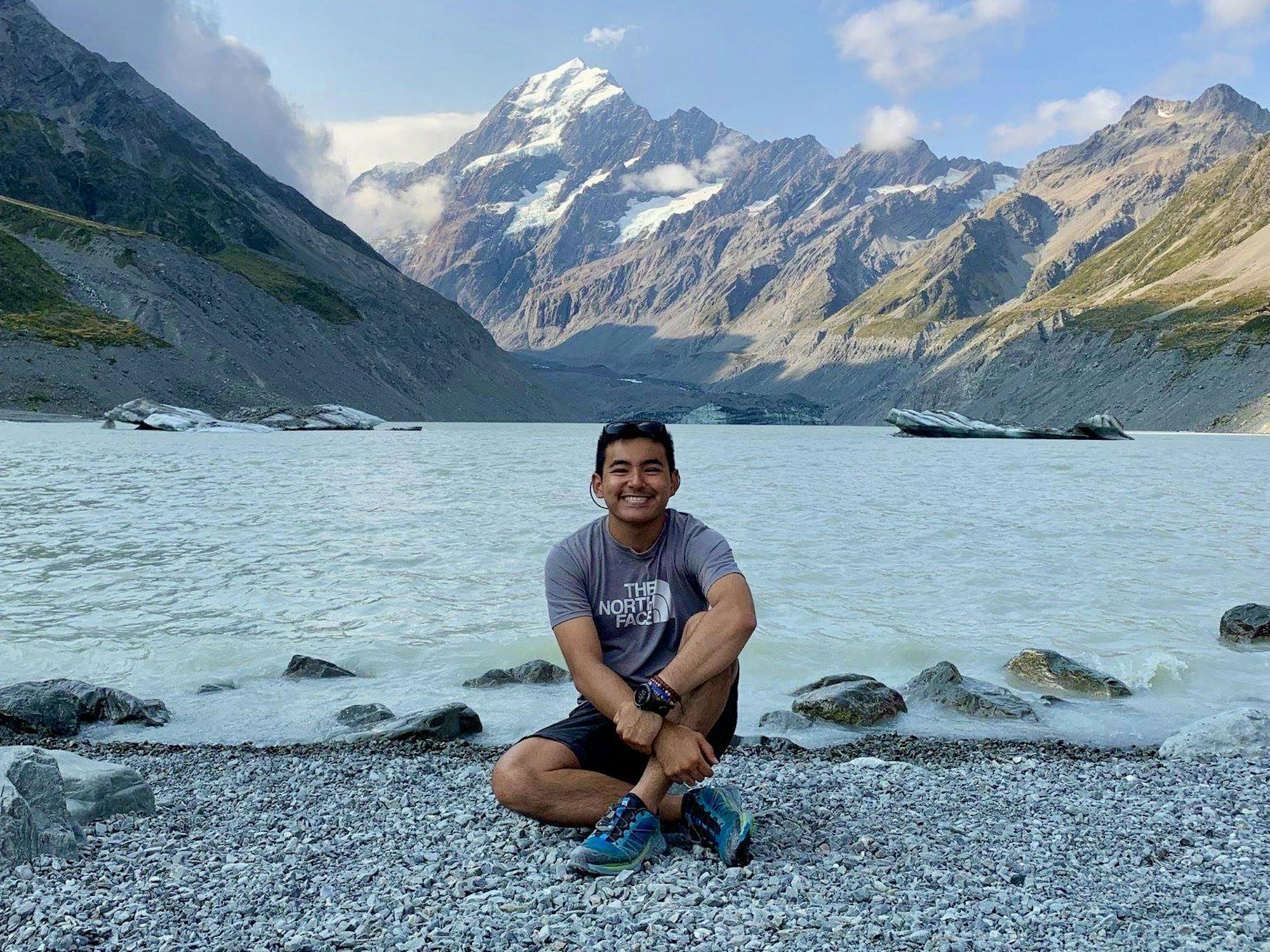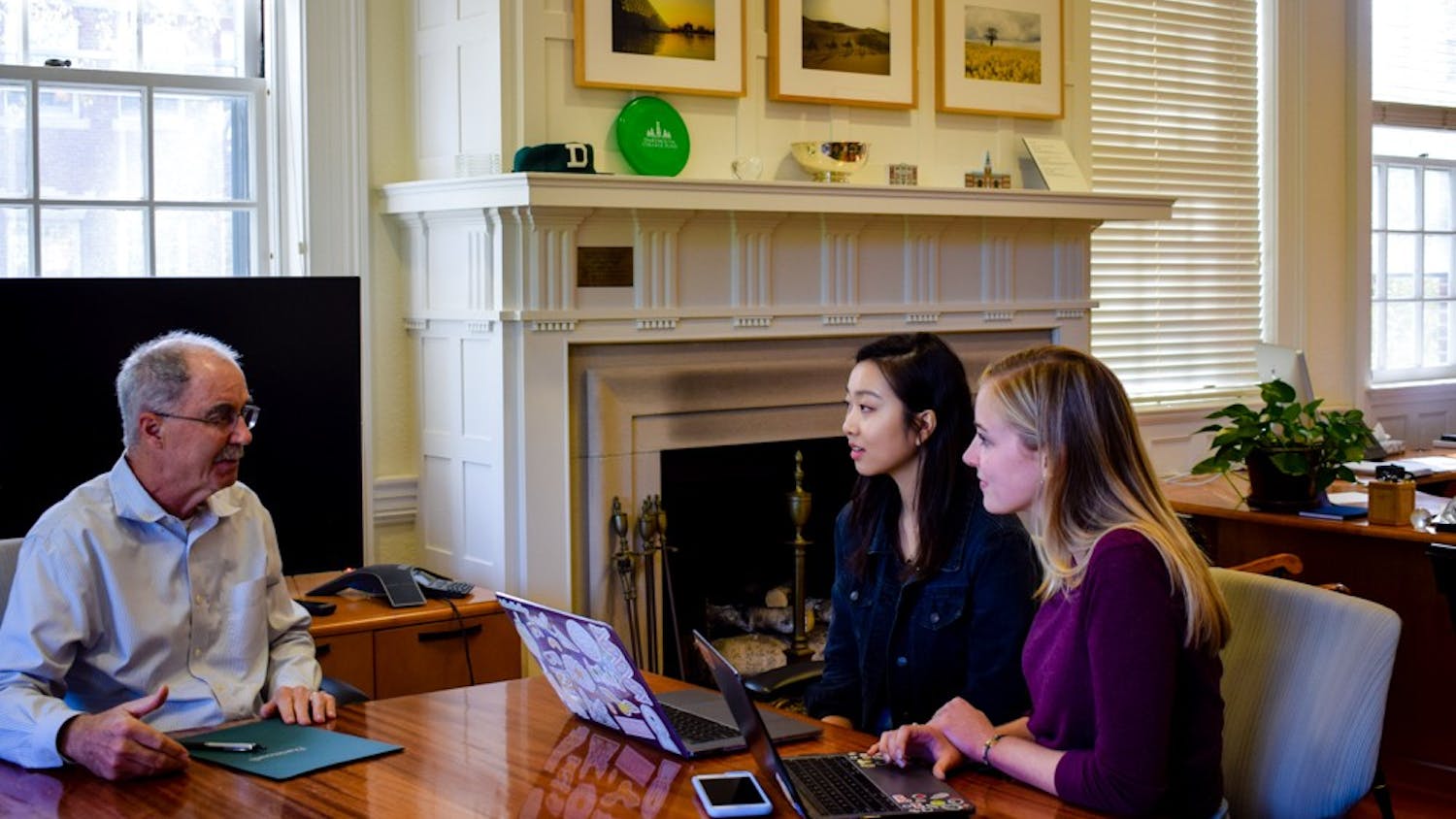Dartmouth has been a placed filled with incredible opportunities and experiences that have allowed me to challenge myself and engage with my passions in a meaningful way. In my freshman year, a serendipitous series of events ranging from interesting courses to new ties with mentors and peers accelerated me into the world of global health. Lisa Adams, the dean of global health at Geisel School of Medicine and human being extraordinaire, appreciated my enthusiasm and offered me mentorship. Thanks to her and so many others, I’ve received tremendous support using both the sciences and humanities to understand the structural violence and epidemiology that have resulted in global health inequities, most profoundly for women and children of color.
The initial spark of interest catalyzed the design for a long-term research project that would serve as the capstone of my Dartmouth experience. Using all the resources that the College has to offer, I engaged with literature and worked with faculty across disciplines to design a six-month research project in Tanzania, looking into the contemporary culture of health and healthcare delivery and how colonialism has impacted them. One day in Tanzania, the excitement and momentum of my perceived life’s work collapsed. This is a story about a conflict between aspiration and circumstance: a moment when the work put into following your path unknowingly leads you to a dark and challenging place.
Nearly four months into my time in Tanzania, I felt established. With a dependable group of local friends and a growing confidence in my conversational Kiswahili, the busy streets of Dar es Salaam and the rest of the country beyond the city limits felt more and more like home. My research into the lived experiences of healthcare in Tanzania afforded me with incredible conversations with new people. I was optimistic and felt affirmed that the path of global health and engaging with health inequities was the right one for me.
However, on the day I will describe here, everything went wrong. The day’s events started off with me boarding a dala-dala, a bus that really is just a glorified van. Onboard, I struck up a conversation with a seemingly nice man, something that I had already done many times onboard, in hopes of continuing to practice my Kiswahili. The bus was stalled in the usual bumper-to-bumper traffic. After a few minutes, we realized that we were both heading in the same direction, so he asked me if I wanted to hop off and share a taxi that would avoid the congestion with side roads, since taxis aren’t tied to the routes that dala-dalas are.
We got off and he hailed a taxi. When we got onboard, everyone acted like they were meeting for the first time. After taking some back streets to “avoid traffic,” the car stopped on a quiet street. Two more men got into the car, sandwiching me in the back seat. After exposing the handle of a switchblade and turning up the radio to muffle any loud noises, they took everything out of my pockets and forced me to give the pin to my debit card. We then spent the next two hours driving around the city to various ATMs, extracting money that the College had funded me with until my card locked. Finally, they left me with a little bit of money to find my way home and dropped me off in a remote part of the city.
My friends came to my assistance afterwards, for which I am eternally grateful. Beyond the stressful experience and the loss of physical capital, I was safe and well-supported. At my core, however, something was fractured. The years of work at Dartmouth engaging with courses, faculty and peers seemed useless. The efforts I put in to designing this research project and the extensive application process to obtain funding all seemed to be for nothing. I had let down all the people who put their faith in me, and I felt useless that all the terms of work came crumbling down because of my own stupidity.
I once found a crash course video on kidnappings in my YouTube recommended section for some reason. Curiously clicking on the link, the video’s narrator recommended compliance and appealing to the humanistic side of the perpetrator in an abduction situation. Despite not sharing their names, I was able to learn a bit about my short-term captors in the hours that I was with them. They claimed to have been Congolese refugees who had been in Tanzania for over 10 years. They each had large families and were unable to get a real job due to their immigration status. I hope that they were being truthful.
After reflection, I realized that this was an experience that showed a lot about the lived experiences of poverty and inequality, something that I care deeply about addressing. I am still convinced of the good in people, and I don’t think that any individual inherently wants to make a living off of stealing things. These people were in a desperate situation and they saw my presence as an opportunity. I hoped that as a result, their family had more food on the table and that things were easier for them for a little while. With that in mind, it wasn’t so bad.
In hindsight, everything about that day feels incidental. I guess everything makes for good fodder in my book of life experiences as long as I live to tell the tale. In retrospect, one aspect that gives me a laugh is the fact that I was speaking Kiswahili the entire time. Quite impressive that I had a grasp of the language strong enough to still be using it while being mugged! This is an experience that I would never wish upon anyone else, and one that I hope to never undergo again.
In contrast with the conflict that I felt immediately after, though, I feel more determined after realizing how this experience was a window into how structural violence manifests itself. Going through this gave me a lesson on empathy, and I hope that anyone who reads this can understand a little bit more about how poverty affects people, and how much work there is to be done to combat the structural violence that manifests inequities. I guess here is hoping for lower Gini coefficients that would make things like theft more obsolete …




